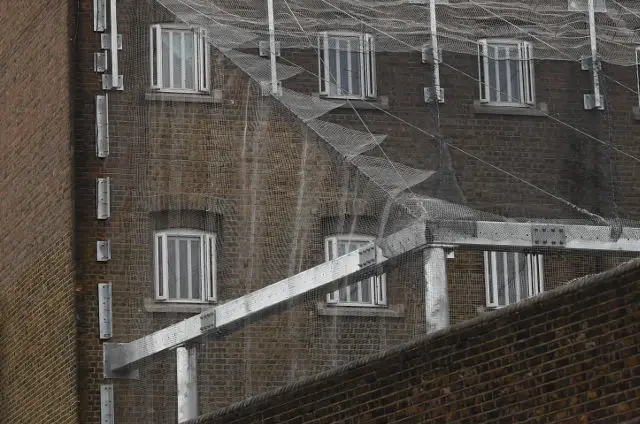The number of drugs found by prison staff at Isle of Wight prisons has rocketed over the last five years.
Prison reform charity, the Howard League, says that the increase in contraband, including drugs and mobile phones, in English and Welsh prisons reflects wider failings in the penal system.
Six times more than five years ago
In the 12 months to March 2018, 51 searches uncovered drugs within the Isle of Wight prisons – six times more than five years ago.
Over the same period, 4% of the mandatory drug tests conducted at HMP Isle of Wight returned a positive result, figures from the Ministry of Justice and Her Majesty’s Prison and Probation Service show.
In total, inmates failed 28 of the 666 tests conducted in the institution.
Includes psychoactive substances
For the first time this year, the figures include psychoactive substances such as spice, the abuse of which has increasingly become a concern for prison staff.
The most common single drug found to have been taken at HMP Isle of Wight was opiates, which was found in 54% of samples.
20% of drug tests positive
The situation on the Isle of Wight reflects the national picture, where 20% of all drug tests carried out in prisons in England and Wales were positive – meaning more than 11,000 samples were returned showing drug use.
Andrew Neilson, the campaigns director at the Howard League for Penal Reform, said that the finds of drugs and other contraband – including mobile phones, 13 of which were found at HMP Isle of Wight over the last year – were symptomatic of wider problems in the prison system.
He said:
“The rising number of drugs and mobile phone confiscations is a symptom of the problems in an overburdened and under-resourced prison system that is failing the public.
“Where there is drug abuse there is also debt and violence, and these problems have become more severe in prisons across England and Wales as overcrowding and staff shortages have taken their toll.
“The best way to reduce the supply of drugs into prisons is to reduce the demand for them. This means ensuring that prisons are properly resourced and prisoners are occupied with purposeful activity, such as work, education, training and exercise.
“Above all, we need to see bold but sensible action to reduce the prison population. This would save lives, protect staff and prevent more people being swept away into deeper currents of crime and despair.”
Conditions in England and Wales’s prisons were recently highlighted when HMP Birmingham was taken into government control from private contractors G4S.
Widespread drug use was reported, with three recent fatalities thought to be linked to psychoactive substance abuse.
Game changer for prison safety
Reacting to the national numbers, Justice Secretary David Gauke said:
“New psychoactive substances (NPS) are a game changer for prison safety, and these statistics reinforce the scale of the challenge.
“We are addressing this head on, and our £7 million investment in prison security will further bolster defences via airport-security style scanners, improved searching techniques and phone-blocking technology.
“We are also adopting pioneering approaches such as our ‘Drug Recovery Prison’ pilot at HMP Holme House, which is leading the way in tackling the supply of drugs and putting offenders on a long-term path to recovery.”
Combined figures
Isle of Wight Prison was formed from three institutions, Albany, Camp Hill and Parkhurst, in 2009.
Although they reported their figures separately until 2013, all three instutions have been combined for comparison between 2012 and 2017.
Article shared by Data Reporter as part of OnTheWight’s collaboration with Press Association and Urbs Media





